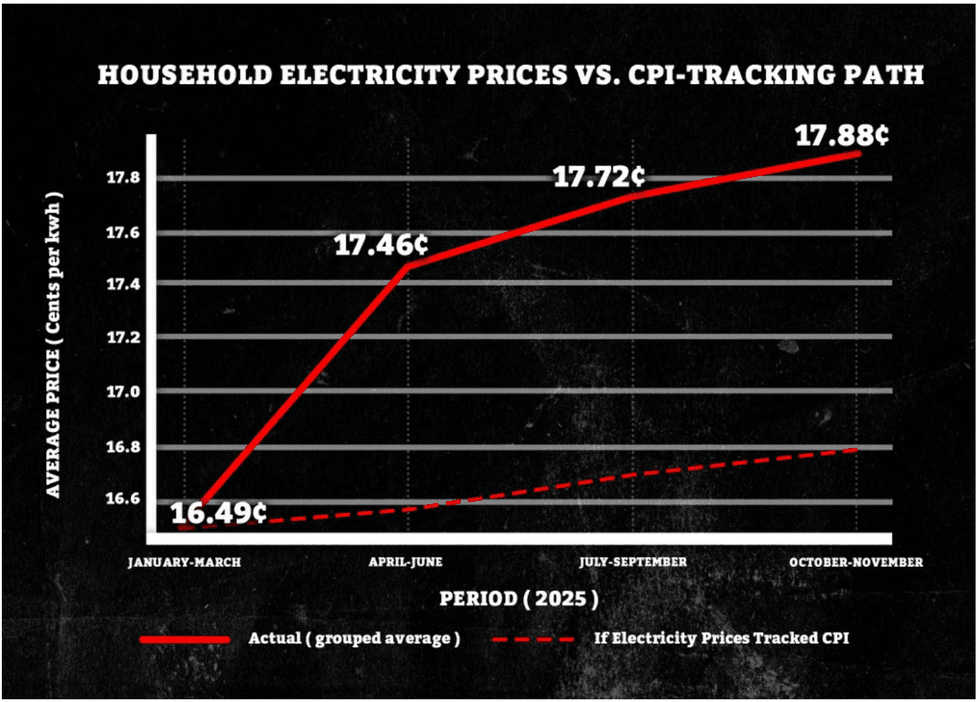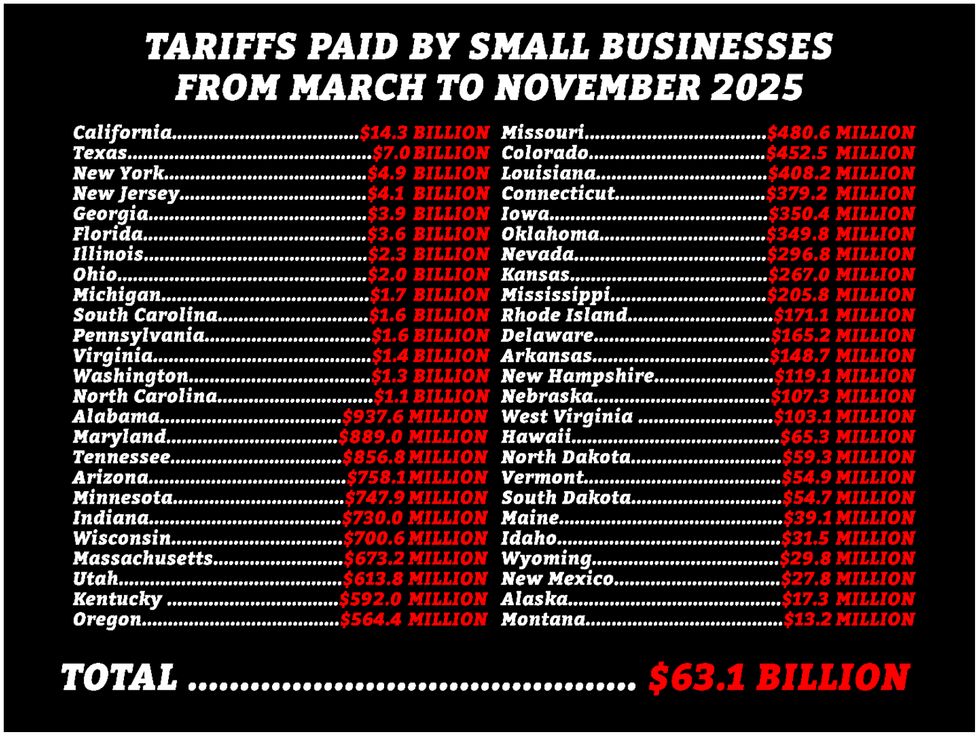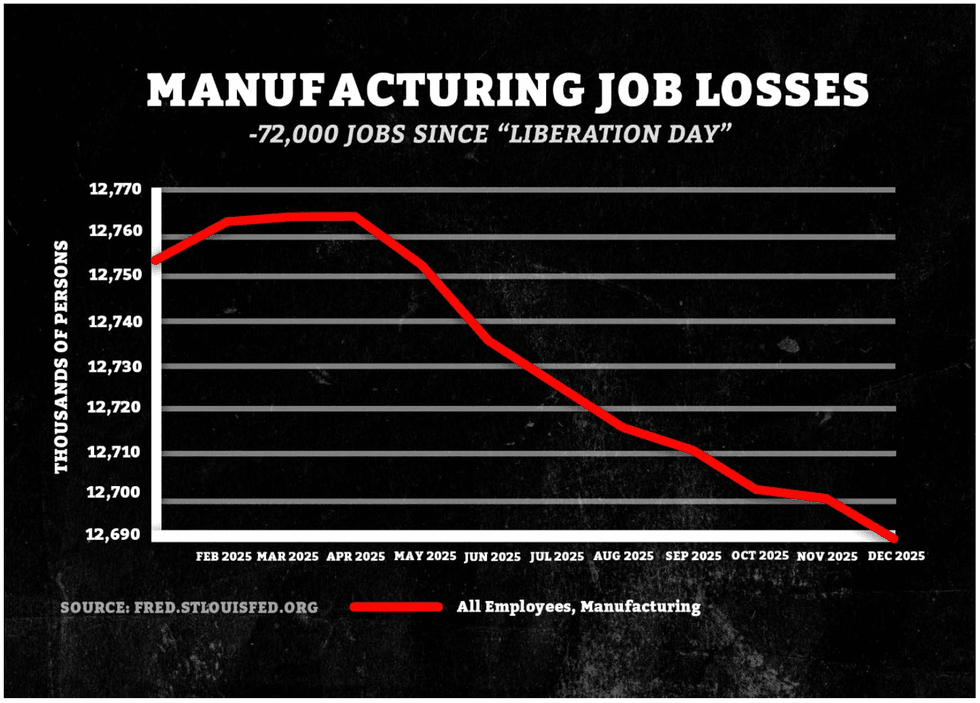

SUBSCRIBE TO OUR FREE NEWSLETTER
Daily news & progressive opinion—funded by the people, not the corporations—delivered straight to your inbox.
5
#000000
#FFFFFF
To donate by check, phone, or other method, see our More Ways to Give page.


Daily news & progressive opinion—funded by the people, not the corporations—delivered straight to your inbox.

The Center for Economic and Policy Research (CEPR) first published a study comparing paid vacation time in the US to other rich countries in 2007 and again in 2013. In a newly revised report released today, No-Vacation Nation, Revised reports that the United States continues to be the only advanced economy that does not guarantee its workers any paid vacation time or holidays.
"If New York City passes pending legislation, it will be the first city or state in the nation to mandate paid vacation," said CEPR's Adewale Maye, who updated this revised edition.
The revised report is a comprehensive review of the latest available data on international standards for paid vacation and paid holidays in 21 rich countries, including 16 European countries, Australia, Canada, Japan, New Zealand, and the United States.
This graph illustrates where the US ranks among these other nations when it comes to providing statutory paid vacations and holidays. Just skip down to the last line.
Also unchanged over the span of revisions are the nearly 1-in-4 Americans that do not receive any paid vacation and paid holidays. Some employers voluntarily bestow paid vacation and paid holiday benefits, but those benefits are extremely unequal.
"In the US, paid vacation and holiday benefits are based on luck in the boss lottery, not federal policy. Since we did this study in 2007, there's been no progress on the national front to catch up with other rich countries. We can't depend on the largesse of employers to do the right thing," said Eileen Appelbaum, CEPR's Co-Director.
There are a few differences worth noting between today's revised study and the 2007, and 2013 editions within the areas of part- and full-time and high- and low-wage workers:
* Employers gave paid vacation to 69 percent of low-wage workers in 2007; 49 percent in 2013; and, 52 percent in 2019.
* Employers gave paid vacation to 88 percent of high-wage workers in 2007; 90 percent in 2013; and, 91 percent in 2019.
* Employers gave paid vacation to 36 percent of part-time workers in 2007; 35 percent in 2013; and, 40 percent in 2019.
* Employers gave paid vacation to 90 percent of full-time workers in 2007; 91 percent in 2013, and, 90 percent in 2019.
Workers in the European Union are legally guaranteed at least 20 paid vacation days per year, with some countries mandating 25, or even, 30 or more days. Although significantly lower than countries in the EU, Canada and Japan guarantee at least 10 days of paid vacation per year.
The Center for Economic and Policy Research (CEPR) was established in 1999 to promote democratic debate on the most important economic and social issues that affect people's lives. In order for citizens to effectively exercise their voices in a democracy, they should be informed about the problems and choices that they face. CEPR is committed to presenting issues in an accurate and understandable manner, so that the public is better prepared to choose among the various policy options.
(202) 293-5380"China firmly supports Cuba in safeguarding national sovereignty and security and opposing external interference," a Beijing spokesperson said.
As the Trump administration weaponizes its economic privation of the Cuban people in hopes of ousting their socialist government, China on Tuesday reaffirmed its pledge to help alleviate the island's worsening oil shortage.
Emboldened by his recent abduction of socialist Venezuelan President Nicolás Maduro on legally dubious "narco-terrorism" charges, President Donald Trump is ratcheting up pressure on a people already ravaged by 64 years of what many critics call Washington's "economic terrorism" and decades of actual terrorism committed by US-based right-wing Cuban exiles.
Cut off from the Venezuelan petroleum that provided around 75% of Cuba's imported oil just a few years ago, the island is suffering a worsening energy emergency. The Cuban government has responded by strictly rationing fuel and seeking alternate sources of oil such as Mexico and, to a lesser extent, Russia.
"I would like to stress again that China firmly supports Cuba in safeguarding national sovereignty and security and opposing external interference," Chinese Foreign Ministry spokesperson Lin Jian said during a press conference.
"China stands firmly against the inhumane actions that deprive the Cuban people of their right to subsistence and development," he added. "China will, as always, do our best to provide support and assistance to Cuba."
As is usually the case when Washington tightens the screws on Cuba, everyday Cubans are suffering the most.
“You can’t imagine how it touches every part of our lives,” Marta Jiménez, a hairdresser in Cuba’s eastern city of Holguín, told CodePink co-founder and frequent Common Dreams opinion contributor Medea Benjamin, who traveled to Cuba last week with a group to deliver 2,500 pounds of lentils.
“It’s a vicious, all-encompassing spiral downward," Jiménez continued. "With no gasoline, buses don’t run, so we can’t get to work. We have electricity only three to six hours a day. There’s no gas for cooking, so we’re burning wood and charcoal in our apartments. It’s like going back 100 years."
"The blockade is suffocating us—especially single mothers,” she added, “and no one is stopping these demons, Trump and [Secretary of State] Marco Rubio.”
The United Nations General Assembly has voted overwhelmingly every year but once since 1992 to condemn the US blockade on Cuba. Last October, the UNGA voted 165-7 against the embargo, with 12 abstentions.
"Your Department of Justice initially released this list of 32 survivors' names, with only one name redacted," Rep. Pramila Jayapal told Attorney General Pam Bondi.
US Attorney General Pam Bondi on Wednesday refused to apologize to victims of late sex offender Jeffrey Epstein during a contentious hearing before the House Judiciary Committee.
During the hearing, Rep. Pramila Jayapal (D-Wash.) grilled Bondi on why her office failed repeatedly to comply with a law passed in 2025 requiring the US Department of Justice (DOJ) to release "all unclassified records, documents, communications, and investigative materials in DOJ’s possession that relate to the investigation and prosecution of Jeffrey Epstein."
In particular, Jayapal noted that some of the files released by the DOJ so far have kept victims' names intact, even while redacting the names of several powerful men who are implicated in Epstein's sex trafficking operation.
"Your Department of Justice initially released this list of 32 survivors' names, with only one name redacted," said Jayapal, who then slammed the DOJ for releasing files that not only included victims' names but also their email and residential addresses, and even nude photographs of them.
🚨HISTORIC. Rep. Jayapal asks Epstein survivors to raise their hand if they still haven't been invited to meet with Pam Bondi or the DOJ.
Every single one raises their hand.
Sometimes gestures are more powerful than words. Damn this Administration.
pic.twitter.com/jyYG7Mj6tN
— CALL TO ACTIVISM (@CalltoActivism) February 11, 2026
"Survivors are now telling us that their families are finding out for the first time that they were trafficked by Epstein," Jayapal continued. "In their words, 'This release does not provide closure, it feels like a deliberate attempt to intimidate survivors, punish those who came forward, and reinforce the same culture of secrecy that allowed Epstein's crimes to continue for decades.'"
Jayapal then invited the Epstein survivors who were in attendance at the hearing to stand if they so wished, and asked them to raise their hands if they had still yet to meet with the DOJ to discuss the case.
After several women stood and raised their hands, Jayapal asked Bondi if she would apologize to them failing to redact their names and personal information before releasing the Epstein files.
Bondi responded by trying to deflect blame for past failures onto former Attorney General Merrick Garland. Jayapal interrupted the attorney general and asked her if she would apologize to the survivors for disclosing their information.
Bondi again tried to redirect the conversation to Garland, after which Jayapal again objected.
Finally, Bondi responded, "I'm not going to get in the gutter for [Jayapal's] theatrics."
A report released Wednesday by a key Democratic senator details how President Donald Trump's "economic policies are making life unaffordable for millions of American small businesses, their workers, and their customers."
Since Trump returned to power last year, "America's 36 million small businesses and their workers have faced increased costs for everything from healthcare to electricity, groceries, childcare, housing, and other everyday necessities," notes Pain Street, the new report from Sen. Ed Markey (D-Mass.), ranking member of the Senate Committee on Small Business and Entrepreneurship.
The report highlights Republicans' so-called One Big Beautiful Bill Act (OBBBA), which slashed various benefits for US families, and their refusal to extend Affordable Care Act (ACA) subsidies that helped over 20 million Americans afford health insurance.
The OBBBA's $1 trillion Medicaid cut "is devastating for small businesses," the document declares, noting that 630,000 owners and more than 7.5 million workers at such companies rely on the federal program for healthcare coverage. Additionally, over 10 million owners and employees relied on the ACA tax credits that expired at the end of last year.
The publication also points to the president's attacks on clean energy and support for the planet-wrecking fossil fuel industry that helped him secure a second term. It says that "household electric bills have increased by 11.5%, and commercial electric bills have increased by 9%," stressing that such costs have climbed "more than three times faster than the overall rate of inflation."

The report also spotlights the "whiplash and cost of Trump's reckless tariffs," emphasizing that while the president often claims foreign countries are paying for his import taxes, "analysis by the Kiel Institute for the World Economy found that 96% of Trump's tariffs are being paid by American importers and consumers."
Specifically, since last March, US small businesses have shelled out more than $63.1 billion because of Trump tariffs. California—the world's fifth-largest economy—leads the state-by-state breakdown, at $14.3 billion, followed by Texas ($7 billion), New York ($4.9 billion), New Jersey ($4.1 billion), Georgia ($3.9 billion), Florida ($3.6 billion), Illinois ($2.3 billion), Ohio ($2 billion), Michigan ($1.7 billion), and South Carolina ($1.6 billion).

The president also claims that his tariffs are spurring a "manufacturing renaissance," but "approximately 98% of manufacturers in the United States employ fewer than 500 workers, with 75% of manufacturers employing fewer than 20," the report states. "US manufacturing shrank for the 10th consecutive month in December, and US factories have shed 72,000 jobs since Trump's 'liberation day' in April."
Adding to the evidence of Trump's negative impact, the Bureau of Labor Statistics announced Wednesday that across all sectors, US employers added just 181,000 jobs last year, far below its initial estimate of 584,000, and the country's economy has more than a million fewer jobs than previously reported.

Markey's staff further found that "soaring rents have left a record 22.6 million renters—approximately 50% of all renters in the US—struggling to afford their rent," 70% of families said last year that raising children is too expensive, and Trump's deportation agenda is estimated to reduce the number of immigrant and US-born workers by more than 5 million.
"Small businesses don't have Mar-a-Lago memberships, golden gifts, or ballroom invitations granting them special exemptions from Trump’s reckless economic policies, including his tariff taxes," Markey said in a statement announcing the report.
"Since Inauguration Day, Trump has made life more expensive for Americans—driving up costs on everything from healthcare, electricity, and groceries to childcare and housing—all while giving tax cuts to CEO billionaires and currying favors with big business," he continued. "As Trump's affordability crisis wreaks havoc on Main Street, we must fight back to protect small businesses, working families, and communities in Massachusetts and across the country."
As part of that fight, Markey has tried to pass multiple pieces of legislation that would exempt small businesses from Trump's tariffs, but both chambers of Congress remain narrowly controlled by the president's Republican Party.